Discover The 365 Days of Astronomy
The 365 Days of Astronomy

The 365 Days of Astronomy
Author: 365DaysOfAstronomy.org
Subscribed: 4,478Played: 218,824Subscribe
Share
© 2009
Description
The 365 Days of Astronomy podcast launched in 2009 as part of the International Year of Astronomy. This community podcast continues to bring you day after day of content across the years. Everyday, a new voice, helping you see the universe we share in a new way. This show is managed by Avivah Yamani, edited by Richard Drumm. This podcast is funded through Patreon.com/CosmoQuestX and produced out of the Planetary Science Institute.
2219 Episodes
Reverse
Dr. Al Grauer hosts. Dr. Albert D. Grauer ( @Nmcanopus ) is an observational asteroid hunting astronomer. Dr. Grauer retired from the University of Arkansas at Little Rock in 2006. travelersinthenight.org From March 2025. Today's 2 topics: - Astronomers have yet to discover any long lasting natural object, beside our Moon, which orbits the Earth, however, occasionally, a small space rock enters into a temporary dance with our home planet. - My Catalina Sky Survey teammate Greg Leonard was asteroid hunting in the constellation of Hydra with our Schmidt telescope on Mt. Bigelow, Arizona when a fast moving unknown point of light passed through a set of his images. After Greg reported his observations to the Minor Planet Center for the next 10 days it was tracked by observatories in Arizona, Italy, Hawaii, Australia, and Argentina. Citizen scientist H. A. Güler analyzed these data. The Minor Planet Center published the discovery of the near Earth asteroid 2018 CN41. The discovery was deleted when the object turned out to be a Falcon Heavy Rocket Upper stage with a Tesla roadster attached. We've added a new way to donate to 365 Days of Astronomy to support editing, hosting, and production costs. Just visit: https://www.patreon.com/365DaysOfAstronomy and donate as much as you can! Share the podcast with your friends and send the Patreon link to them too! Every bit helps! Thank you! ------------------------------------ Do go visit http://www.redbubble.com/people/CosmoQuestX/shop for cool Astronomy Cast and CosmoQuest t-shirts, coffee mugs and other awesomeness! http://cosmoquest.org/Donate This show is made possible through your donations. Thank you! (Haven't donated? It's not too late! Just click!) ------------------------------------ The 365 Days of Astronomy Podcast is produced by the Planetary Science Institute. http://www.psi.edu Visit us on the web at 365DaysOfAstronomy.org or email us at info@365DaysOfAstronomy.org.
Hosted by Dr. Jacinta Delhaize, Dr. Tshiamiso Makwela & Dr. Daniel Cunnama. In this "mid-season special" episode, we introduce you to an extraordinary giant radio galaxy nicknamed "Inkathazo", meaning 'trouble' in isiXhosa and isiZulu. We speak with Kathleen Charlton, a Master's student from the University of Cape Town, about the discovery of Inkathazo and her newly published work on the topic. Kathleen spoke with us from the University of Oxford, where she was working with team members from the 'MIGHTEE' collaboration. She describes her experiences of first attending the AGN Populations Across Continents and Cosmic Time conference in Durham and then her research visit to Oxford. She also explains her research into both hydrogen absorption and giant radio galaxies. In her newly published paper, Kathleen uses South Africa's MeerKAT telescope to study the strange physics going on in three giant radio galaxies (or GRGs for short). GRGs are behemoth galaxies spewing out plasma jets spanning millions of light-years. She nicknamed one of these 'Inkathazo', which means 'trouble' in the African Xhosa and Zulu languages, because of its "troublesome" properties. It has unusually bent plasma jets and resides at the center of a galaxy cluster. This raises intriguing questions about how these enormous structures form and evolve. Kathleen describes how she used MeerKAT to create some of the highest-resolution "spectral age maps" of giant radio galaxies ever made. These maps track the age of the plasma across different parts of the GRG, providing clues about the complex plasma physics at work in these extreme galaxies. We've added a new way to donate to 365 Days of Astronomy to support editing, hosting, and production costs. Just visit: https://www.patreon.com/365DaysOfAstronomy and donate as much as you can! Share the podcast with your friends and send the Patreon link to them too! Every bit helps! Thank you! ------------------------------------ Do go visit http://www.redbubble.com/people/CosmoQuestX/shop for cool Astronomy Cast and CosmoQuest t-shirts, coffee mugs and other awesomeness! http://cosmoquest.org/Donate This show is made possible through your donations. Thank you! (Haven't donated? It's not too late! Just click!) ------------------------------------ The 365 Days of Astronomy Podcast is produced by the Planetary Science Institute. http://www.psi.edu Visit us on the web at 365DaysOfAstronomy.org or email us at info@365DaysOfAstronomy.org.
From January 27, 2021. It's a day ending in 'y', and planetary formation theories are once again being challenged. This time the challenge comes from a six-planet system with five planets in resonance. Plus a cloudless Jupiter, TRAPPIST-1, volcanoes, and some science of the weird. We've added a new way to donate to 365 Days of Astronomy to support editing, hosting, and production costs. Just visit: https://www.patreon.com/365DaysOfAstronomy and donate as much as you can! Share the podcast with your friends and send the Patreon link to them too! Every bit helps! Thank you! ------------------------------------ Do go visit http://www.redbubble.com/people/CosmoQuestX/shop for cool Astronomy Cast and CosmoQuest t-shirts, coffee mugs and other awesomeness! http://cosmoquest.org/Donate This show is made possible through your donations. Thank you! (Haven't donated? It's not too late! Just click!) ------------------------------------ The 365 Days of Astronomy Podcast is produced by the Planetary Science Institute. http://www.psi.edu Visit us on the web at 365DaysOfAstronomy.org or email us at info@365DaysOfAstronomy.org.
Hosted by Dr. Pamela Gay. A gentle fancy for the Christmas Season—an oft-told tale with a wistful twistful of Something that left the Earth with a wing and a prayer. Earlier today, I had the stark realization that at the core of many Christmas stories is a core of sorrow or longing that must somehow be transformed into joy. Scrouge must learn charity. Ralphie longs for a bb gun and is betrayed by his joy. George is on the brink of suicide when his Guardian Angel intercedes. John McClane just needs to keep his wife alive (yes, Die Hard is a Christmas movie). Over and over, the holiday spirit can only enter on the wings of struggle. This realization came to me as I looked for an old school (aka public domain) science fiction story to narrate for tomorrow's episode of 365 Days of Astronomy. The first story I came across (which I'll personally share tomorrow), was Arthur C Clarke's, "The Star" and it was too dark for that family-friendly podcast. Instead, I read "Second Landing," by Floyd Wallace. This story originally appeared in Amazing Science Fiction Stories. Read it here: https://www.gutenberg.org/cache/epub/24958/pg24958-images.html Written in 1960 by Floyd L. Wallace, this story is weirdly timeless and felt utterly necessary for this moment. Aliens learn of Earth from our broadcasts, and they fear we are on the verge of destroying ourselves with the bomb. To say more would be to reveal the plot. I invite you to listen here and find hope in a world of too much darkness. Merry Christmas. We've added a new way to donate to 365 Days of Astronomy to support editing, hosting, and production costs. Just visit: https://www.patreon.com/365DaysOfAstronomy and donate as much as you can! Share the podcast with your friends and send the Patreon link to them too! Every bit helps! Thank you! ------------------------------------ Do go visit http://www.redbubble.com/people/CosmoQuestX/shop for cool Astronomy Cast and CosmoQuest t-shirts, coffee mugs and other awesomeness! http://cosmoquest.org/Donate This show is made possible through your donations. Thank you! (Haven't donated? It's not too late! Just click!) ------------------------------------ The 365 Days of Astronomy Podcast is produced by the Planetary Science Institute. http://www.psi.edu Visit us on the web at 365DaysOfAstronomy.org or email us at info@365DaysOfAstronomy.org.
Hosted by our Director, Avivah Yamani! What does "solstice" really mean? In this episode, we unpack the Sun's yearly turning point, the seasonal flip between hemispheres, and the ancient sky-architecture of Stonehenge, from June solstice sunrise to December solstice sunset. We've added a new way to donate to 365 Days of Astronomy to support editing, hosting, and production costs. Just visit: https://www.patreon.com/365DaysOfAstronomy and donate as much as you can! Share the podcast with your friends and send the Patreon link to them too! Every bit helps! Thank you! ------------------------------------ Do go visit http://www.redbubble.com/people/CosmoQuestX/shop for cool Astronomy Cast and CosmoQuest t-shirts, coffee mugs and other awesomeness! http://cosmoquest.org/Donate This show is made possible through your donations. Thank you! (Haven't donated? It's not too late! Just click!) ------------------------------------ The 365 Days of Astronomy Podcast is produced by the Planetary Science Institute. http://www.psi.edu Visit us on the web at 365DaysOfAstronomy.org or email us at info@365DaysOfAstronomy.org.
https://www.youtube.com/watch?v=UE8yHySiJ4A Hosted by Tony Darnell. From Sep 21, 2012. This video was done by request from a Space Fan. Hope it's what you had in mind. IC 1101 is over one billion light years away in the constellation Virgo, just over the border from Serpens. https://en.wikipedia.org/wiki/IC_1101 We've added a new way to donate to 365 Days of Astronomy to support editing, hosting, and production costs. Just visit: https://www.patreon.com/365DaysOfAstronomy and donate as much as you can! Share the podcast with your friends and send the Patreon link to them too! Every bit helps! Thank you! ------------------------------------ Do go visit http://www.redbubble.com/people/CosmoQuestX/shop for cool Astronomy Cast and CosmoQuest t-shirts, coffee mugs and other awesomeness! http://cosmoquest.org/Donate This show is made possible through your donations. Thank you! (Haven't donated? It's not too late! Just click!) ------------------------------------ The 365 Days of Astronomy Podcast is produced by the Planetary Science Institute. http://www.psi.edu Visit us on the web at 365DaysOfAstronomy.org or email us at info@365DaysOfAstronomy.org.
https://www.youtube.com/watch?v=2uvcumUc6Gc Hosted by: Fraser Cain ( @frasercain ) and Dr. Pamela L. Gay ( @CosmoQuest ) Streamed live on Dec 15, 2025. Atomic hydrogen is the raw material for stars, but there's a problem. It's cold & dark, but it can do a very rare trick, releasing a photon in a very specific wavelength, known as the 21 centimeter line. And thanks to this wavelength astronomers have mapped out star forming regions across the Milky Way, the Universe and into the Dark Ages! This forbidden transition of Hydrogen has led to the mapping of galaxy rotation, a cool classroom application of quantum mechanics, and weirdly no Nobel prize. In this episode, Fraser and Pamela take a look at this line's out-of-proportion awesomeness! This show is supported through people like you on Patreon.com/AstronomyCast In this episode, we'd like to thank: Andrew Poelstra, BogieNet, Brian Cagle, Burry Gowen, David, David Rossetter, Ed, Gerhard Schwarzer, Jason Kwong, Jeanette Wink, Michael Purcell, Sergey Manouilov, Siggi Kemmler, Sérgio Sancevero We've added a new way to donate to 365 Days of Astronomy to support editing, hosting, and production costs. Just visit: https://www.patreon.com/365DaysOfAstronomy and donate as much as you can! Share the podcast with your friends and send the Patreon link to them too! Every bit helps! Thank you! ------------------------------------ Do go visit http://www.redbubble.com/people/CosmoQuestX/shop for cool Astronomy Cast and CosmoQuest t-shirts, coffee mugs and other awesomeness! http://cosmoquest.org/Donate This show is made possible through your donations. Thank you! (Haven't donated? It's not too late! Just click!) ------------------------------------ The 365 Days of Astronomy Podcast is produced by the Planetary Science Institute. http://www.psi.edu Visit us on the web at 365DaysOfAstronomy.org or email us at info@365DaysOfAstronomy.org.
Dr. Al Grauer hosts. Dr. Albert D. Grauer ( @Nmcanopus ) is an observational asteroid hunting astronomer. Dr. Grauer retired from the University of Arkansas at Little Rock in 2006. travelersinthenight.org From October 2025. Today's 2 topics: - Friday the 13th appears to continue to be a lucky day for the human race. When astronomers first discovered Apophis in 2004 it appeared possible that this 3 million ton, 1,200 foot diameter asteroid traveling at 8 mi/s could impact our planet creating a crater a several miles diameter and more than a half mile deep. Additional observations over the years have eliminated this possibility as Apophis streaks by closer than the communications satellites on that lucky Friday the 13th. Further, current calculations have reduced the chances of Apophis colliding with Earth in the next 100 years to about one in 100,000. However, over the millennia Apophis is likely to strike the Earth as does one it's size once every 100,000 years or so. - Finding a meteorite that has traveled billions of miles through space to reach it's present location is exciting. It might even be worth real money. We've added a new way to donate to 365 Days of Astronomy to support editing, hosting, and production costs. Just visit: https://www.patreon.com/365DaysOfAstronomy and donate as much as you can! Share the podcast with your friends and send the Patreon link to them too! Every bit helps! Thank you! ------------------------------------ Do go visit http://www.redbubble.com/people/CosmoQuestX/shop for cool Astronomy Cast and CosmoQuest t-shirts, coffee mugs and other awesomeness! http://cosmoquest.org/Donate This show is made possible through your donations. Thank you! (Haven't donated? It's not too late! Just click!) ------------------------------------ The 365 Days of Astronomy Podcast is produced by the Planetary Science Institute. http://www.psi.edu Visit us on the web at 365DaysOfAstronomy.org or email us at info@365DaysOfAstronomy.org.
Episode 12. "ASTROMAN: the Dark Sky Guardian" is a podcast channel that aims to explore popular science in multiple disciplines and research on interdisciplinary approaches, such as sustainability, dark-sky protection, astrophotography, space exploration, astronomy innovation, inclusive science communication, and STEAM Education by integrating science and arts. Exodus CL Sit, also known as the ASTROMAN, is a transmedia astronomy educator, popular science author, STEAM educator, and science communicator in Hong Kong. He is recently the National Astronomy Education Coordinator (Chair of Hong Kong, China) of the International Astronomical Union and President of Starrix. He was also an International Committee Member of the Dark Sky International, regularly organizing public lectures at the Hong Kong Space Museum and the Hong Kong Science Museum. He was also the author of a popular science book "Decoding the Starry Night: A Guide to Stargazing and Astrophotography". We've added a new way to donate to 365 Days of Astronomy to support editing, hosting, and production costs. Just visit: https://www.patreon.com/365DaysOfAstronomy and donate as much as you can! Share the podcast with your friends and send the Patreon link to them too! Every bit helps! Thank you! ------------------------------------ Do go visit http://www.redbubble.com/people/CosmoQuestX/shop for cool Astronomy Cast and CosmoQuest t-shirts, coffee mugs and other awesomeness! http://cosmoquest.org/Donate This show is made possible through your donations. Thank you! (Haven't donated? It's not too late! Just click!) ------------------------------------ The 365 Days of Astronomy Podcast is produced by the Planetary Science Institute. http://www.psi.edu Visit us on the web at 365DaysOfAstronomy.org or email us at info@365DaysOfAstronomy.org.
From February 11, 2020. Today's show starts with a mighty YORP. It turns out the YORP effect may spin asteroids to death in dying star systems. We also look at how the formations of giant planets and brown dwarf stars differ, and a new way to get science from dust. We've added a new way to donate to 365 Days of Astronomy to support editing, hosting, and production costs. Just visit: https://www.patreon.com/365DaysOfAstronomy and donate as much as you can! Share the podcast with your friends and send the Patreon link to them too! Every bit helps! Thank you! ------------------------------------ Do go visit http://www.redbubble.com/people/CosmoQuestX/shop for cool Astronomy Cast and CosmoQuest t-shirts, coffee mugs and other awesomeness! http://cosmoquest.org/Donate This show is made possible through your donations. Thank you! (Haven't donated? It's not too late! Just click!) ------------------------------------ The 365 Days of Astronomy Podcast is produced by the Planetary Science Institute. http://www.psi.edu Visit us on the web at 365DaysOfAstronomy.org or email us at info@365DaysOfAstronomy.org.
Hosted by Chris Beckett & Shane Ludtke, two amateur astronomers in Saskatchewan. actualastronomy@gmail.com Today we have a guest joining us, Richard Wolf-Jacobson who is the founder of BB Labs/ PiFinder which is a new type of finder device. https://www.pifinder.io/ Before we get going Richard, can you tell us about where you are / observe / how you got started in Astronomy, what your interests are and what equipment you use? * What is a Pi Finder? * How does it work? / How do you set it up? * Do you need to attach anything to your AltAz or Dec Axis? * What is plate solving..isn't that just for imagers? * How accurate is it? * What camera is in the device? Can someone do anything with the images? Do they get exported out to one's phone? * How did you come up with the PiFinder * I see it is Open Source - what makes it open source? How can people modify it? Can someone roll their own? * What databases are in there? Can someone add their own? Can it interface with SkySafari or other softwares? * What formats does it come in or is it one size fits all? * Can one change from a back view to a side view to take it from a refractor to a dob. *Does it interface with Smart Phone? * How does it perform in the cold? * How small a scope can it go onto? * What are your future plans? We've added a new way to donate to 365 Days of Astronomy to support editing, hosting, and production costs. Just visit: https://www.patreon.com/365DaysOfAstronomy and donate as much as you can! Share the podcast with your friends and send the Patreon link to them too! Every bit helps! Thank you! ------------------------------------ Do go visit http://www.redbubble.com/people/CosmoQuestX/shop for cool Astronomy Cast and CosmoQuest t-shirts, coffee mugs and other awesomeness! http://cosmoquest.org/Donate This show is made possible through your donations. Thank you! (Haven't donated? It's not too late! Just click!) ------------------------------------ The 365 Days of Astronomy Podcast is produced by the Planetary Science Institute. http://www.psi.edu Visit us on the web at 365DaysOfAstronomy.org or email us at info@365DaysOfAstronomy.org.
https://spacescoop.org/en/scoops/2528/whats-the-shape-of-a-supernova/ Rewritten & recorded by your editor, Richard Drumm. When you imagine an explosion in space, a supernova is usually what first comes to mind. But astronomers are still quite puzzled by some of the details of these cosmic fireworks. The typical supernova we often picture is really the end of a massive star's life. And a very dramatic ending at that! During its existence, a star keeps its spherical shape through a very delicate balance between: - the outward pressure created by the core's nuclear heat, what we call the radiation pressure, and - the gravity that compresses the star toward its center of mass. We call this balance a state of hydrostatic equilibrium. We've added a new way to donate to 365 Days of Astronomy to support editing, hosting, and production costs. Just visit: https://www.patreon.com/365DaysOfAstronomy and donate as much as you can! Share the podcast with your friends and send the Patreon link to them too! Every bit helps! Thank you! ------------------------------------ Do go visit http://www.redbubble.com/people/CosmoQuestX/shop for cool Astronomy Cast and CosmoQuest t-shirts, coffee mugs and other awesomeness! http://cosmoquest.org/Donate This show is made possible through your donations. Thank you! (Haven't donated? It's not too late! Just click!) ------------------------------------ The 365 Days of Astronomy Podcast is produced by the Planetary Science Institute. http://www.psi.edu Visit us on the web at 365DaysOfAstronomy.org or email us at info@365DaysOfAstronomy.org.
Large Extra Dimensions! Hosted by Dr. Paul M. Sutter. What do extra dimensions have to do with the strength of gravity? What is a tower of gravitons? How can we detect extra dimensions even if we can't perceive them? I discuss these questions and more in today's Ask a Spaceman! Support the show: http://www.patreon.com/pmsutter All episodes: http://www.AskASpaceman.com Watch on YouTube: http://www.youtube.com/PaulMSutter Read a book: https://www.pmsutter.com/books Keep those questions about space, science, astronomy, astrophysics, physics, and cosmology coming to #AskASpaceman for COMPLETE KNOWLEDGE OF TIME AND SPACE! Big thanks to my top Patreon supporters this month: Justin G, Chris L, Alberto M, Duncan M, Corey D, Michael P, Naila, Sam R, Joshua, Scott M, Rob H, Scott M, Louis M, John W, Alexis, Gilbert M, Rob W, Jessica M, Jules R, Jim L, David S, Scott R, Heather, Mike S, Pete H, Steve S, Lisa R, Kevin B, Aileen G, Steven W, Deb A, Michael J, Phillip L, Steven B, Mark R, Alan B, Craig B, Richard K, Stephen J, Joe R, David P, Justin, Tracy F, Ella F, Thomas K, James C, Syamkumar M, Homer V, Mark D, Bruce A, Tim Z, Linda C, The Tired Jedi, Lode D, Bob C, Red B, Stephen A, James R, Robert O, Allen E, Michael S, Reinaldo A, Sheryl, David W, Chris, Michael S, Erlend A, James D, Larry D, Karl W, Den K, Edward K, Craig M, Scott K, Vivek D, Barbara C, Brad, Azra K, Steve R, Koen G, and Narrative Dude! We've added a new way to donate to 365 Days of Astronomy to support editing, hosting, and production costs. Just visit: https://www.patreon.com/365DaysOfAstronomy and donate as much as you can! Share the podcast with your friends and send the Patreon link to them too! Every bit helps! Thank you! ------------------------------------ Do go visit http://www.redbubble.com/people/CosmoQuestX/shop for cool Astronomy Cast and CosmoQuest t-shirts, coffee mugs and other awesomeness! http://cosmoquest.org/Donate This show is made possible through your donations. Thank you! (Haven't donated? It's not too late! Just click!) ------------------------------------ The 365 Days of Astronomy Podcast is produced by the Planetary Science Institute. http://www.psi.edu Visit us on the web at 365DaysOfAstronomy.org or email us at info@365DaysOfAstronomy.org.
http://www.astronomycast.com/archive/ From June 15, 2009. The surface of the Earth feels solid under your feet, but you're actually standing on a plate of the Earth's crust. And that plate is slowly shifting across the surface of the Earth. Over geologic timescales, plate tectonics has totally resurfaced our planet, bringing continents together, and tearing them apart. We know we have plate tectonics here on Earth, but what about other worlds in the solar system? We've added a new way to donate to 365 Days of Astronomy to support editing, hosting, and production costs. Just visit: https://www.patreon.com/365DaysOfAstronomy and donate as much as you can! Share the podcast with your friends and send the Patreon link to them too! Every bit helps! Thank you! ------------------------------------ Do go visit http://www.redbubble.com/people/CosmoQuestX/shop for cool Astronomy Cast and CosmoQuest t-shirts, coffee mugs and other awesomeness! http://cosmoquest.org/Donate This show is made possible through your donations. Thank you! (Haven't donated? It's not too late! Just click!) ------------------------------------ The 365 Days of Astronomy Podcast is produced by the Planetary Science Institute. http://www.psi.edu Visit us on the web at 365DaysOfAstronomy.org or email us at info@365DaysOfAstronomy.org.
Dr. Al Grauer hosts. Dr. Albert D. Grauer ( @Nmcanopus ) is an observational asteroid hunting astronomer. Dr. Grauer retired from the University of Arkansas at Little Rock in 2006. travelersinthenight.org From October 2025. Today's 2 topics: - Looking at the stars on a clear dark night, far from the artificial air glow humanity creates, have you ever wondered what it would be like to travel in truly deep interstellar space? 40 years after their launches in 1977, your representatives, the twin Voyager 1 and Voyager 2 spacecraft are in the vast space between the stars in our Milky Way galaxy. Aboard each Voyager is a Golden Record time capsule which is expected to last billions of years. This message from all of humanity is inscribed with greetings from Earth as well as sounds, images, and a decoding key which will enable any intelligent aliens which find a Voyager to discover who made it and where it came from. - To reach the vicinity of the nearest star, 24 trillion miles away, in less than 20 years, an interstellar space probe would have to travel at a substantial fraction of the speed of light. Newton's laws of motion, published 300 years ago, predict that the greater the mass of an object the greater is the force required to increase its velocity. In order to alleviate the need for the virtually unaffordable amount of energy required to accelerate a normal sized spacecraft to a speed of 20% of the speed of light, the Breakthrough Starshot program has funded the creation of 'Sprite' , the world's smallest spacecraft. We've added a new way to donate to 365 Days of Astronomy to support editing, hosting, and production costs. Just visit: https://www.patreon.com/365DaysOfAstronomy and donate as much as you can! Share the podcast with your friends and send the Patreon link to them too! Every bit helps! Thank you! ------------------------------------ Do go visit http://www.redbubble.com/people/CosmoQuestX/shop for cool Astronomy Cast and CosmoQuest t-shirts, coffee mugs and other awesomeness! http://cosmoquest.org/Donate This show is made possible through your donations. Thank you! (Haven't donated? It's not too late! Just click!) ------------------------------------ The 365 Days of Astronomy Podcast is produced by the Planetary Science Institute. http://www.psi.edu Visit us on the web at 365DaysOfAstronomy.org or email us at info@365DaysOfAstronomy.org.
Astronomers have observed the longest-ever gamma-ray burst — a powerful, extragalactic explosion that lasted over seven hours. Rapid follow-up observations with the U.S. Department of Energy-fabricated Dark Energy Camera and the International Gemini Observatory provided crucial information about the possible origin of this extraordinary event and the galaxy that hosts it. Bios: - Rob Sparks is in the Communications, Education and Engagement group at NSF's NOIRLab in Tucson, Arizona. - Jonathan Carney is a graduate student at the University of North Carolina at Chapel Hill, where he studies time-domain astronomy with a focus on tidal disruption events. His research spans the full pipeline of transient discovery and characterization, from developing machine learning models for the forthcoming Argus Array to conducting follow-up observations with NOIRLab telescopes. https://carneyjo.github.io/ We've added a new way to donate to 365 Days of Astronomy to support editing, hosting, and production costs. Just visit: https://www.patreon.com/365DaysOfAstronomy and donate as much as you can! Share the podcast with your friends and send the Patreon link to them too! Every bit helps! Thank you! ------------------------------------ Do go visit http://www.redbubble.com/people/CosmoQuestX/shop for cool Astronomy Cast and CosmoQuest t-shirts, coffee mugs and other awesomeness! http://cosmoquest.org/Donate This show is made possible through your donations. Thank you! (Haven't donated? It's not too late! Just click!) ------------------------------------ The 365 Days of Astronomy Podcast is produced by the Planetary Science Institute. http://www.psi.edu Visit us on the web at 365DaysOfAstronomy.org or email us at info@365DaysOfAstronomy.org.
From December 3, 2025. The world we live on today has undergone dramatic change since it first formed, and time hasn't necessarily been kind. Earth has gained some weight (and a Moon) after a chance collision. A leaky gut led to some confusing internal structures. Here on the surface, mountains keep finding new ways to pop off and destroy surroundings. But scientists are helping us understand all these factors. Learn how in this episode of EVSN, and also hear about our latest tales from the launch pad. We've added a new way to donate to 365 Days of Astronomy to support editing, hosting, and production costs. Just visit: https://www.patreon.com/365DaysOfAstronomy and donate as much as you can! Share the podcast with your friends and send the Patreon link to them too! Every bit helps! Thank you! ------------------------------------ Do go visit http://www.redbubble.com/people/CosmoQuestX/shop for cool Astronomy Cast and CosmoQuest t-shirts, coffee mugs and other awesomeness! http://cosmoquest.org/Donate This show is made possible through your donations. Thank you! (Haven't donated? It's not too late! Just click!) ------------------------------------ The 365 Days of Astronomy Podcast is produced by the Planetary Science Institute. http://www.psi.edu Visit us on the web at 365DaysOfAstronomy.org or email us at info@365DaysOfAstronomy.org.
https://www.youtube.com/watch?v=CtVKAQMNjY4 Hosted by Fraser Cain & Tim Dodd. From Feb 27, 2018. NASA is going to decide between a comet sample return mission or a helicopter on Titan. Which mission should it be? [Spoiler alert! NASA went with the Dragonfly mission.] Tim's video: https://www.youtube.com/watch?v=JkS2dP7eiEU We've added a new way to donate to 365 Days of Astronomy to support editing, hosting, and production costs. Just visit: https://www.patreon.com/365DaysOfAstronomy and donate as much as you can! Share the podcast with your friends and send the Patreon link to them too! Every bit helps! Thank you! ------------------------------------ Do go visit http://www.redbubble.com/people/CosmoQuestX/shop for cool Astronomy Cast and CosmoQuest t-shirts, coffee mugs and other awesomeness! http://cosmoquest.org/Donate This show is made possible through your donations. Thank you! (Haven't donated? It's not too late! Just click!) ------------------------------------ The 365 Days of Astronomy Podcast is produced by the Planetary Science Institute. http://www.psi.edu Visit us on the web at 365DaysOfAstronomy.org or email us at info@365DaysOfAstronomy.org.
Hosted by Steve Nerlich. Immortality is hard work. Episode 6a: Staying Switched On It's difficult to achieve immortality unless you also achieve invulnerability, since even if you don't age or get sick you can still die from a natural disaster, or a murder, or whatever. Indeed, the longer you live the more likely some unexpected calamity may come your way. So, if your only immortal up until the point that something goes wrong and you die, then you're not really immortal. Episode 6b: Hopping Universes. The day is coming when our Universe starts winding down towards heat death and our by-then close-to- immortal descendants will need to find a fresh young Universe to continue in. After all, here we living in a Universe that apparently popped of nowhere, quite literally, since the whole idea of a Universe is that it contains spacetime, so whatever nothingness that it did pop out of had neither space nor time dimensions. We've added a new way to donate to 365 Days of Astronomy to support editing, hosting, and production costs. Just visit: https://www.patreon.com/365DaysOfAstronomy and donate as much as you can! Share the podcast with your friends and send the Patreon link to them too! Every bit helps! Thank you! ------------------------------------ Do go visit http://www.redbubble.com/people/CosmoQuestX/shop for cool Astronomy Cast and CosmoQuest t-shirts, coffee mugs and other awesomeness! http://cosmoquest.org/Donate This show is made possible through your donations. Thank you! (Haven't donated? It's not too late! Just click!) ------------------------------------ The 365 Days of Astronomy Podcast is produced by the Planetary Science Institute. http://www.psi.edu Visit us on the web at 365DaysOfAstronomy.org or email us at info@365DaysOfAstronomy.org.
https://www.youtube.com/watch?v=nUyT46ZQYsc Hosted by Tony Darnell. From Feb 6, 2025. JWST Discovers Planet Formation in the Conditions of the Early Universe! Journey with the James Webb Space Telescope to the star cluster NGC 346, a vibrant region of star birth and potential planet formation. This image offers a glimpse into the early universe, where stars formed under conditions very different from our own Milky Way. See how JWST's infrared vision reveals protoplanetary disks - swirling clouds of gas and dust around young stars - defying previous models of planet formation. Witness the evidence that planets can form in environments with fewer heavy elements than previously thought, expanding our understanding of how planetary systems like our own come to be. This stunning image, a mosaic of data collected by JWST's NIRCam instrument, represents a breakthrough in our understanding of the cosmos. Discover the potential for new worlds and the endless possibilities that await as we continue to explore the universe. We've added a new way to donate to 365 Days of Astronomy to support editing, hosting, and production costs. Just visit: https://www.patreon.com/365DaysOfAstronomy and donate as much as you can! Share the podcast with your friends and send the Patreon link to them too! Every bit helps! Thank you! ------------------------------------ Do go visit http://www.redbubble.com/people/CosmoQuestX/shop for cool Astronomy Cast and CosmoQuest t-shirts, coffee mugs and other awesomeness! http://cosmoquest.org/Donate This show is made possible through your donations. Thank you! (Haven't donated? It's not too late! Just click!) ------------------------------------ The 365 Days of Astronomy Podcast is produced by the Planetary Science Institute. http://www.psi.edu Visit us on the web at 365DaysOfAstronomy.org or email us at info@365DaysOfAstronomy.org.


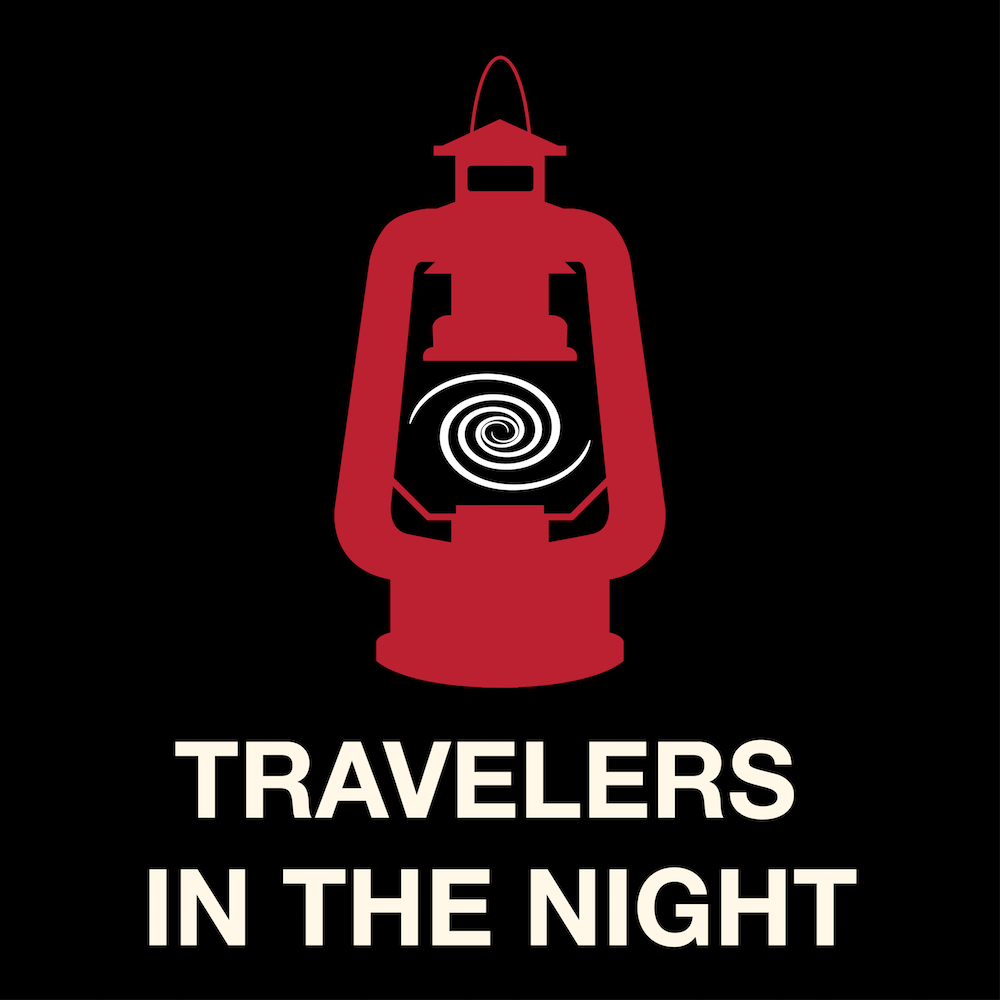



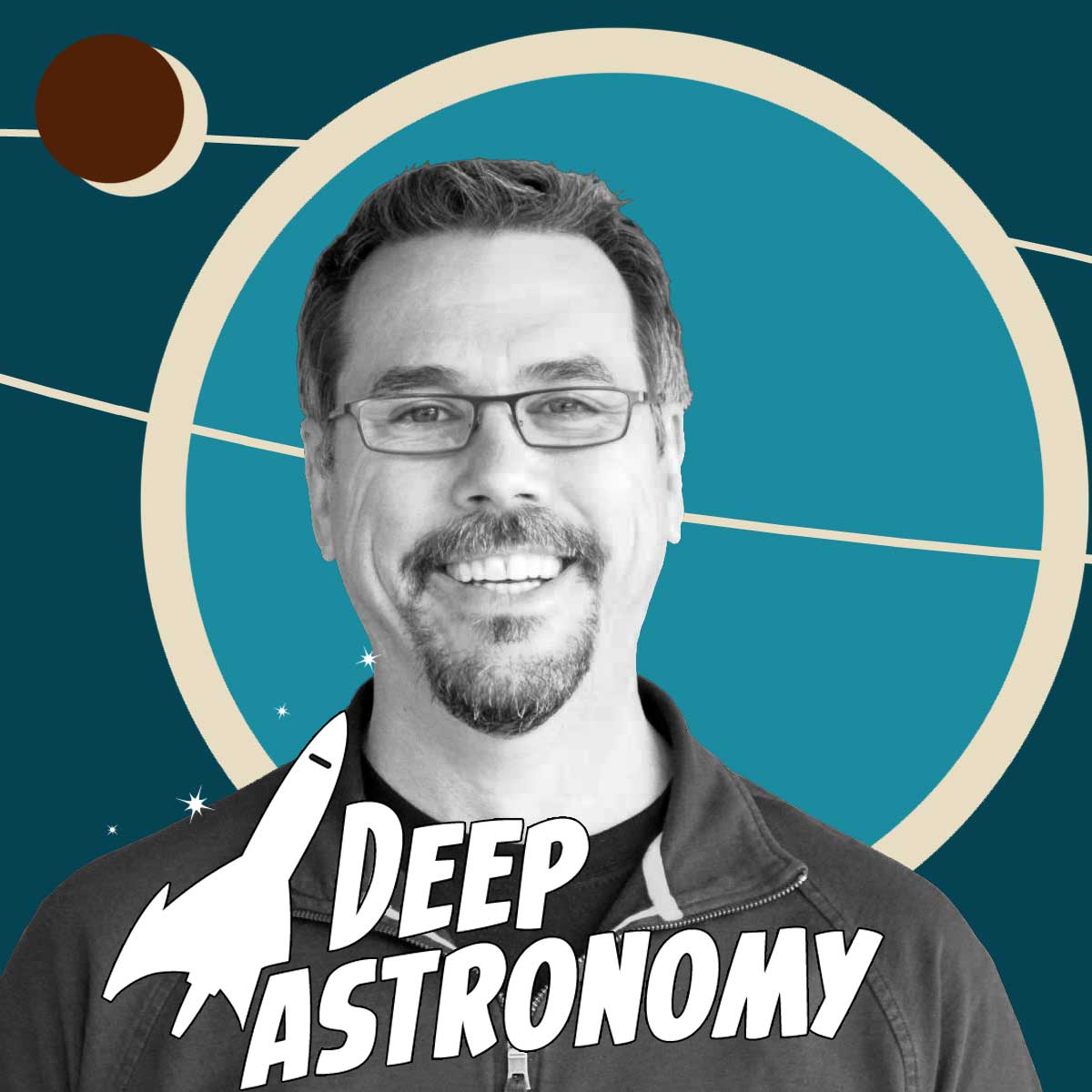
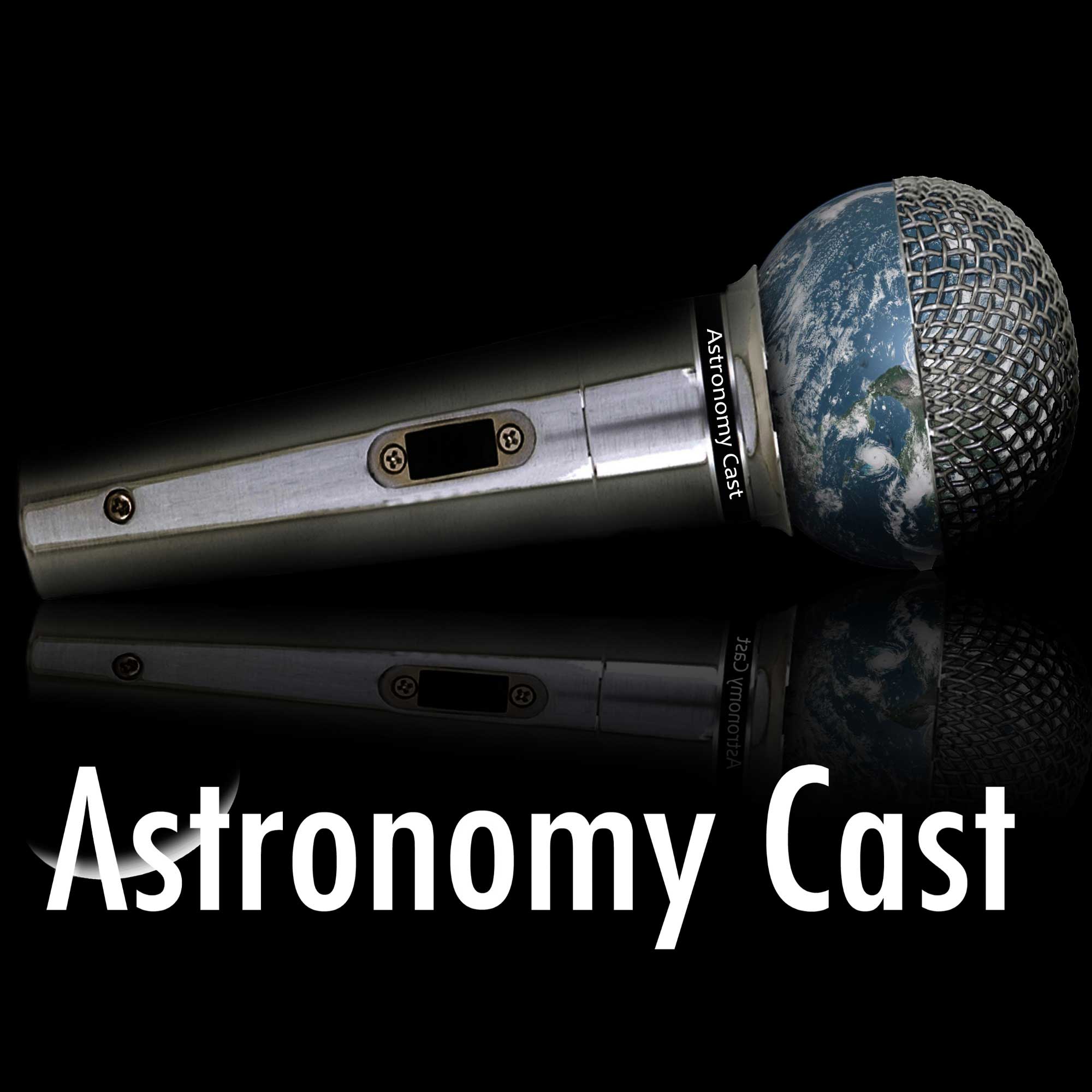

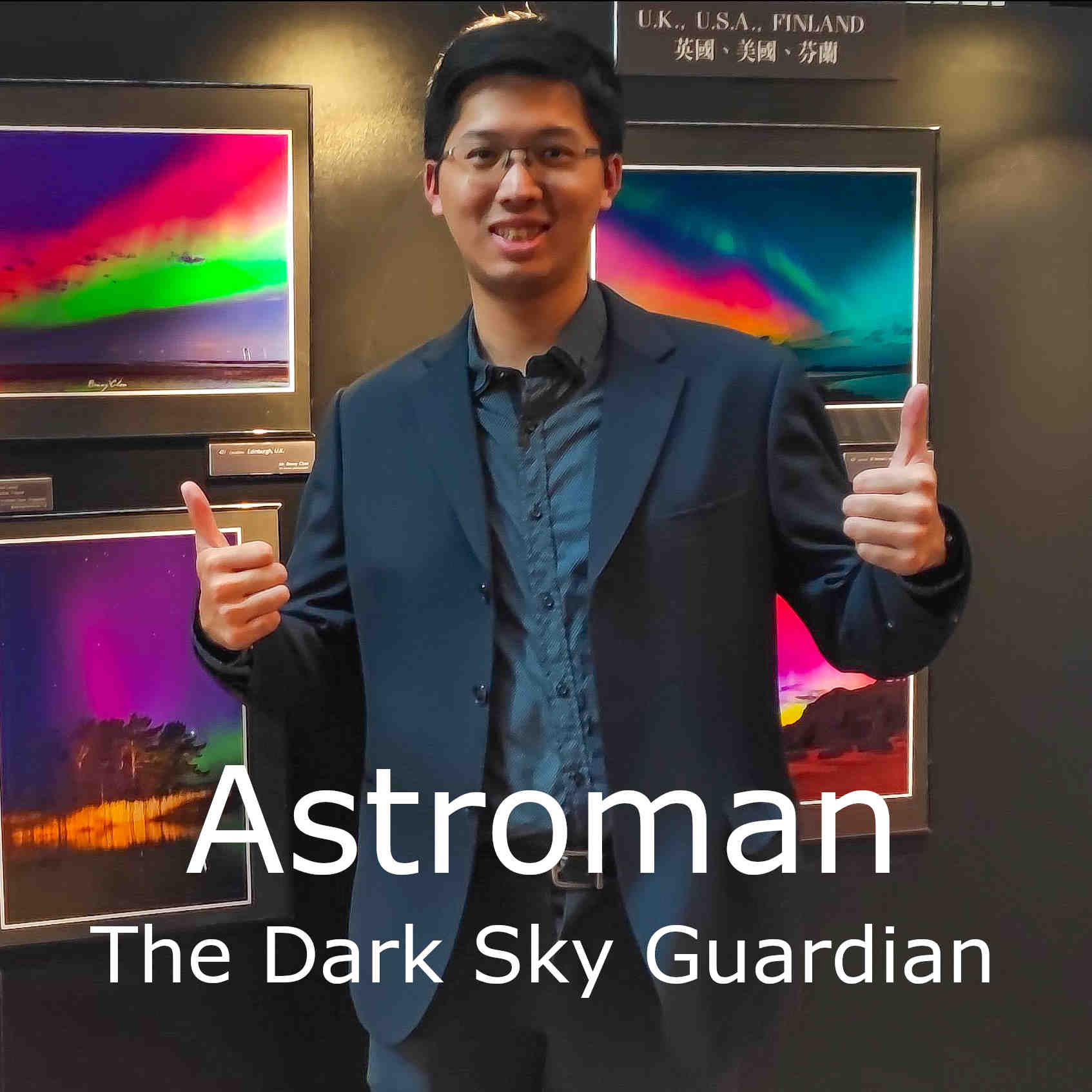






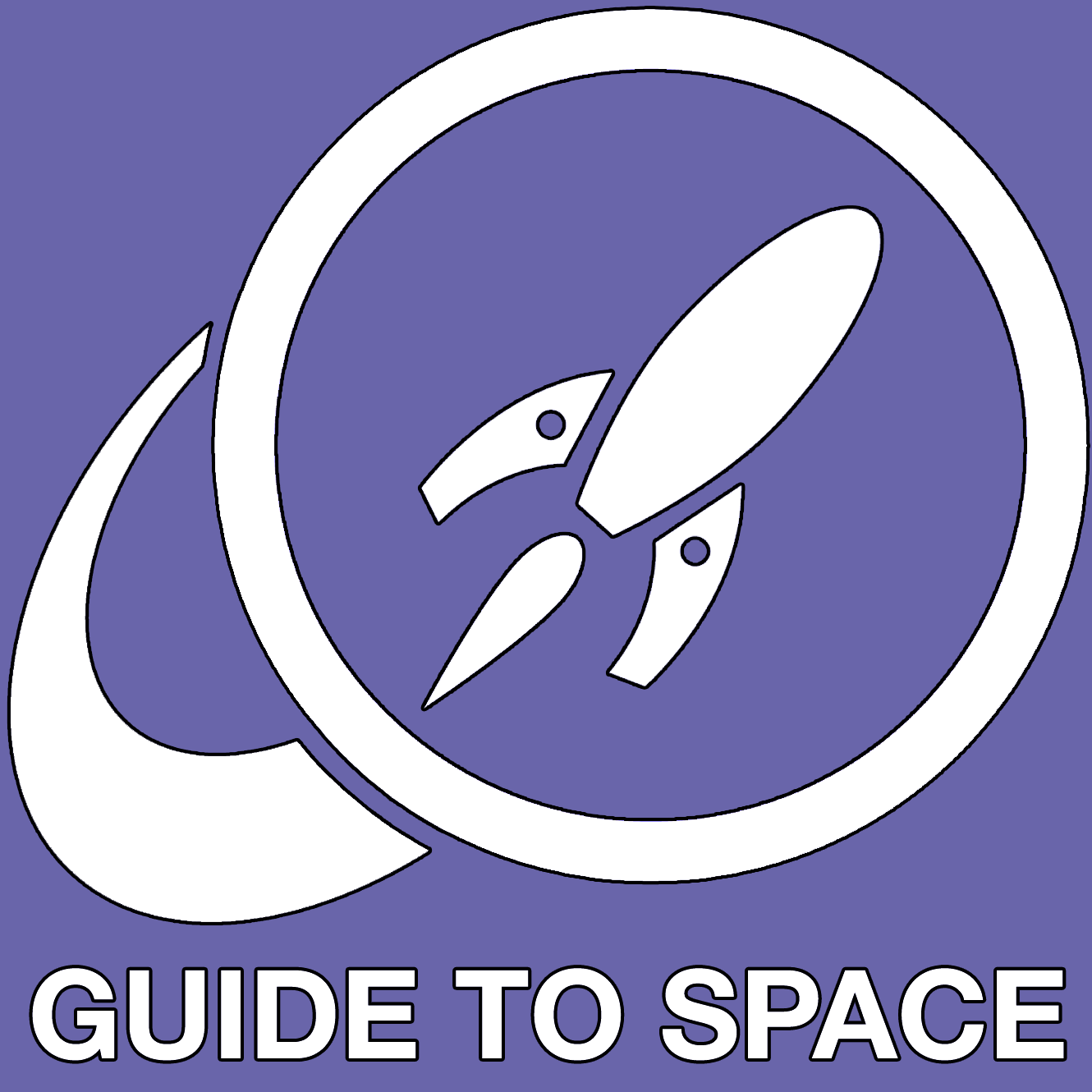
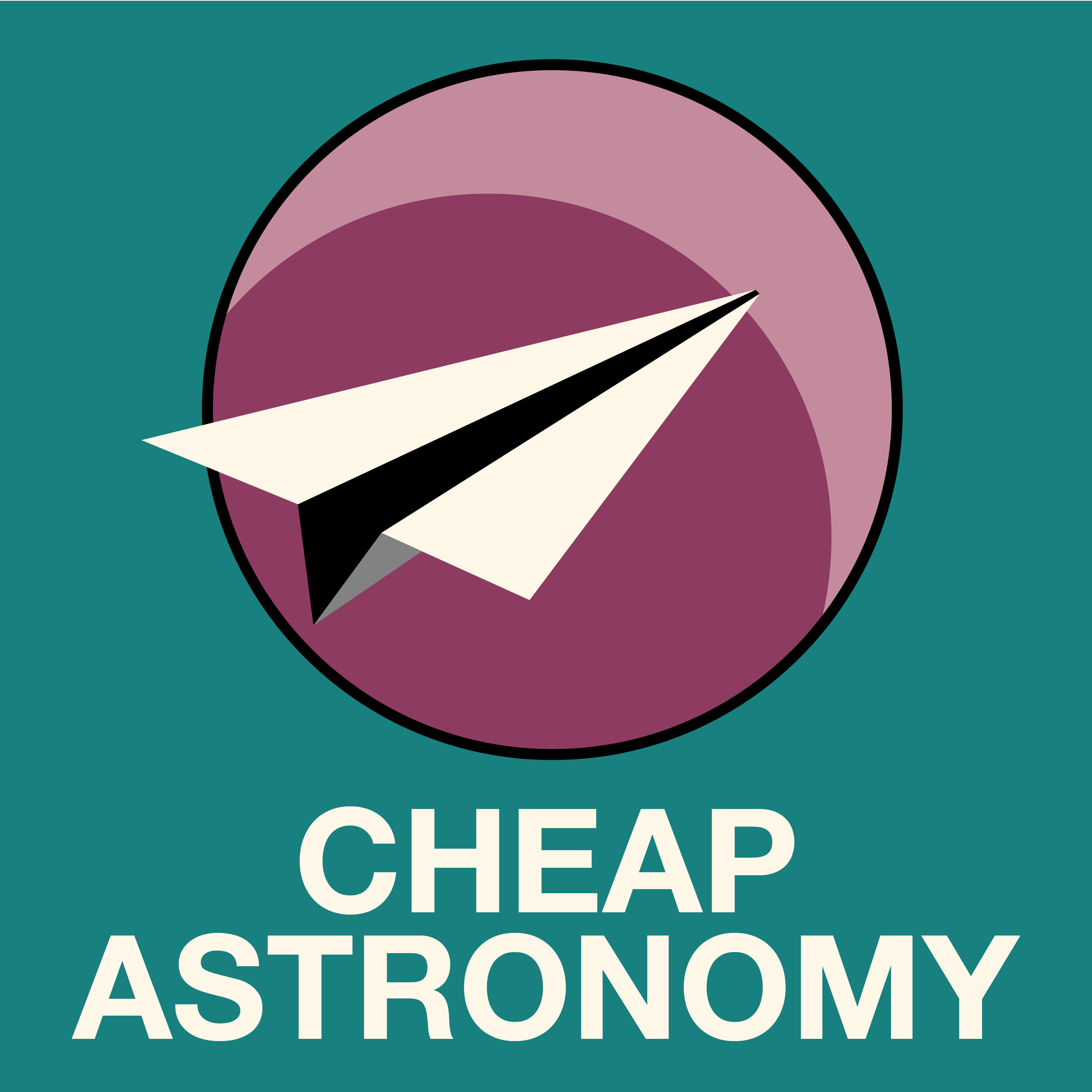




This particular episode needs to be reworked or trashed. Black holes do give up information in the form of Hawkening radiation. Our eyes cannot look at the sun because they evolved to see in a range of daylight that is useful. Light intensity in either side of this brightness and our eyes are not very good and can be damaged by high intensity light whether it is from the sun or not. These people need a qualified editor fact checking like NPR has.
what is a GA?
Absolutely fascinating show Paul 👏
What is the point of saying we are not ready to go to Mars. You obviously have issues getting up in the morning, but you still do.
One of the most enjoyable episodes that I've listened to for a long time 👊
Why are you trying to answer a question on a black hole that no one knows. The answer is we do not know and move on.
Good discussion about pros and cons of using binoculars, but I think the there is a broader reason for being suggested for beginners. Most people have a pair laying around the house that rarely get used and no additional investment required. The other reason is that becoming familiar with the night sky and proximaty to constellations with a telescope can be daunting. Wide field binos are a slam dunk for this. Keep up the good work guys.
on 3d printing in space , what if there are resources in one area and there is a potential for microbiotic life in the same area
re cosmic perspectives isn't the u.s. pulling out of the Paris accords
That voice